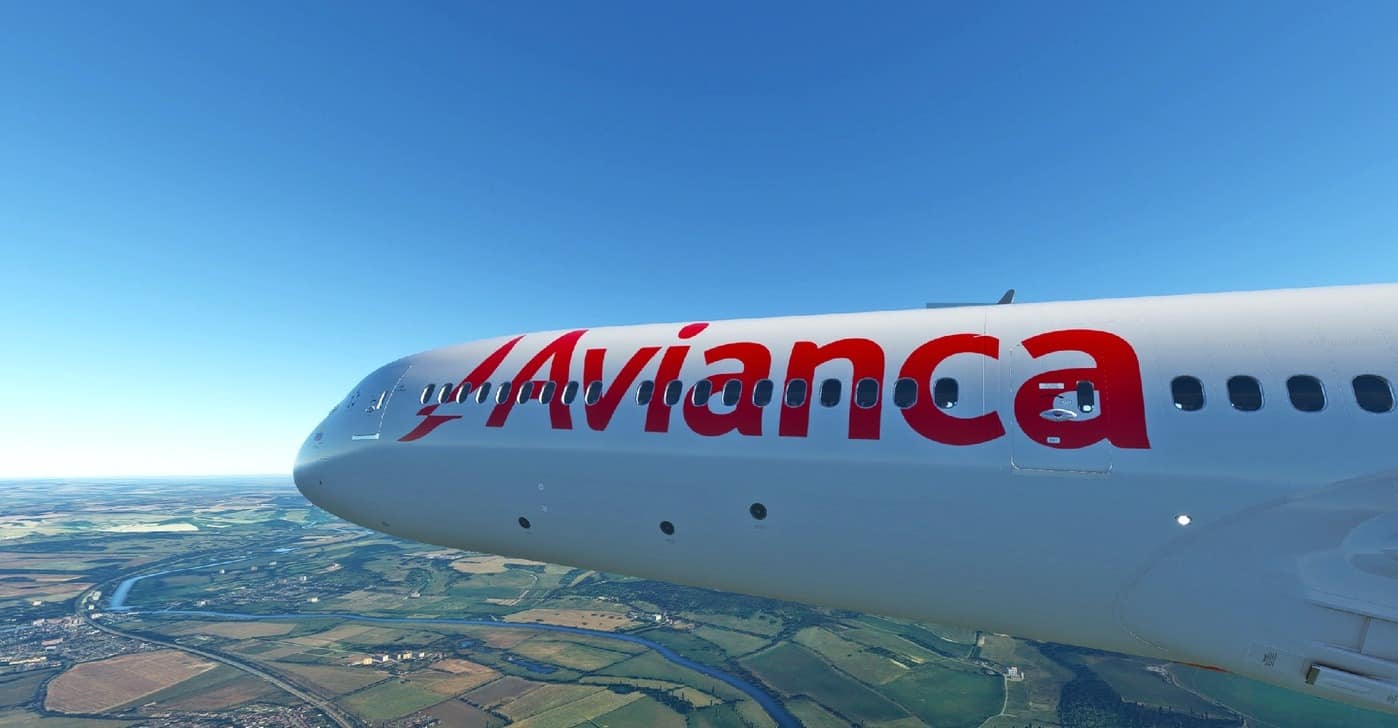After months of quarrels with the Colombian government, the airline Avianca desisted from absorbing the ‘low cost’ firm Viva, accusing the aeronautical authority of making the operation “unviable”.
Bogotá, for its part, assures that the Colombian air market “is robust and solid”.
The disagreements between the Colombian government and Avianca Airlines seem to have reached a climax, with the announcement by the company that it has decided not to take over the low-cost airline Viva Air.

The first Colombian airline’s intention to acquire its low-cost competitor had sparked a dispute with the Colombian Civil Aeronautics Authority (Aerocivil), which sought to prevent a monopoly in Colombian airspace.
“After nine months of having initiated the integration request process and after studying in detail Aerocivil’s resolution 873 of 2023: Avianca desists from the integration with Viva”, the airline stated in a communiqué issued on May 13.
In this way, Avianca publicly stated that it was interrupting the process it had tried to initiate in April 2022, when its shareholders had acquired the economic rights of Viva.
At that time, Avianca had announced its intention to form, together with Viva and Brazil’s Gol, a new conglomerate called Abra, which would seek to dispute the regional leadership of the Latam group.
However, the plan began to crumble months later when Aerocivil – the country’s top aeronautical authority – suspended the merger, claiming that the union of Avianca and Viva would concentrate 35% of Colombia’s air market, something prevented by free competition regulations in the South American country.
The news finally brought down Viva, which began to suspend flights in February and finally ceased operations.
The absence of the low-cost airline, which covered 40 domestic and 18 international destinations, forced the Colombian government to intercede to avoid chaos in air transport.
Thus, Aerocivil authorized the merger between Avianca and Viva at the end of March, although with some conditions.
In effect, the authorization obliged Avianca to maintain low-cost prices on Viva’s frequencies and that there be a price limit on routes without competition.
In addition, the authority required Avianca to return frequencies on the Bogota-Buenos Aires route, as the merger was “particularly impacted”.
Two months later, Avianca was surprised with a statement that after “studying in detail” the resolution, it found that “the Aerocivil’s conditions make the recovery of Viva impossible and could even affect Avianca’s stability”.
In this framework, Avianca questions the “little regulatory flexibility” of the resolution and points out that the requirements do not adjust “to Viva’s current reality”.
According to the company, “the conditions require Avianca to assume obligations, routes, and service and price level commitments that do not coincide with Viva’s remaining capacities after two months of suspension of operations”.
One of the main disputes between Avianca and the Colombian government is the obligation to return frequencies.
In its statement, the company assures that it returned more than 75% of Viva’s slots at Bogota’s El Dorado International Airport and more than 72% of the “premium slots,” but, even so, “the authority demanded the return of several slots that would not allow Viva to base a single aircraft at the country’s main airport in an efficient manner”.
For Avianca, these conditions contradict Viva’s obligations to maintain connectivity and make the merger operation “economically unviable”.
Similarly, Viva also questioned the requirements imposed by the Colombian aeronautical authority, pointing out that the outcome “destroys a company and all the value around it due to the lack of understanding of the business”.
Contrary to the complaints of Avianca and Viva, Aerocivil responded by emphasizing that “the Colombian air transport market is robust and solid” and assuring that “the data show a resilient demand that attracts airlines to supply the supply spaces ceded by Viva Air and thus continue to generate the dynamics that allows resuming the path of growth”.
In addition, the agency said it would ensure fair, attractive, and competitive conditions for investment, focused on the stability of the sector and maintaining the commitment to the social function of property, as required by the constitution.
In this regard, Aerocivil announced that it would strengthen Colombia’s aeronautical regulations and review its strategic plan to “protect the sector, promote connectivity, competitiveness and competition”.
The Colombian authority ratified that its efforts will be focused on “the people who were affected by the suspension of operations” of Viva through “user protection schemes”.
With information from Sputnik
News Colombia, English news Colombia, Avianca

